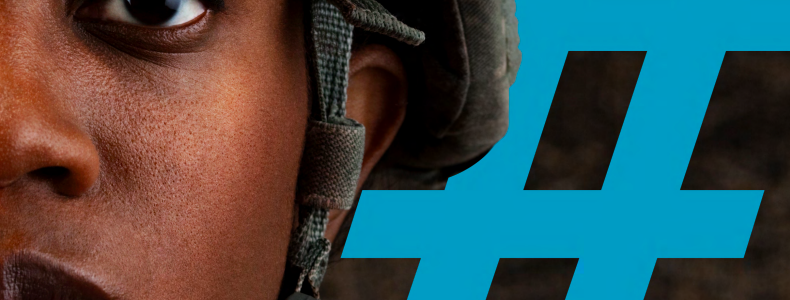Like thousands of other people in Oregon on Oct. 1, 2015, Ross Lipson found himself in a long line to buy weed on the first day of legal, recreational sales. But as he waited, his patience waned and his entrepreneurial spirit kicked in.
Four years earlier, long before UberEats and Skip The Dishes were household names, the Detroit native sold Grub Canada, the country’s first restaurant ordering app, to Just-Eat.ca. But after settling in Bend, a scenic, outdoorsy town on the eastern edge of the Willamette National Forest, he hadn’t yet found a new project to focus on.
“And the lightbulb went off in my head — it went off very bright in my head, blaring, I couldn’t get around it,” the 33-year-old tells The GrowthOp on the phone from his home. “It’s kind of an intersection of my passion for cannabis and my experience in online ordering. And the idea was we need to apply the online ordering model that we had learned in the food space, to the cannabis space.”
He called his older brother, Zach, and explained the idea: Why not make an app for same-day cannabis delivery and click ‘n’ collect purchases?
Zach, with an equal appetite for entrepreneurial ventures, had historically poked holes in his little brother’s lightbulb moments. But this time, Zach knew Ross was on to something. He agreed to co-found the business, taking the design and product side while his brother would take the CEO title and manage business and sales.
“And that was the birth story of Dutchie,” Ross says.
In September of 2019, the co-founders announced they’d raised USD $15 million to grow the business, which was already operating in legal U.S. states. But the COVID-19 pandemic’s impact on the cannabis industry — most notably a surge of demand now-essential retailers weren’t anticipating and evolving regional-specific policies around social distancing — has accelerated those plans.
After regulators eased delivery and curbside pickup restrictions earlier this spring, Dutchie launched in Ontario. For the first time since legalization, online shoppers have an alternative to the Shopify-hosted Ontario Cannabis Store. They’ve also signed up stores in B.C., Alberta and Manitoba.
“Our order volumes have surged,” Ross says. “Right now, we do $2.2 billion annually through the entire system in North America. We saw a 600+ per cent increase in the last month in order volume.”
Easier said than done
Since illicit cannabis dealers have been delivering to homes for ages, it’s puzzling that the market isn’t flooded with weed delivery apps aiming to compete with them.
Seattle-based Leafly has a similar feature, and Toronto-based SuperAnytime recently launched. California-based Weedmaps has listed both illicit and regulated stores for a long time, making it tricky for those who want to stay above board. And Shopify is more like Amazon — customers order, then wait three to five days for a shipment to arrive.
Dutchie’s key differentiator from restaurant apps created a steep learning curve, Ross says. Restaurant menus tend to be fairly static, with the occasional sale or special that a franchise owner or manager can update manually on their end. But dispensary inventories are a very different beast.
“In the cannabis space, the turnover of these products is so fast that every day a cannabis retailer is selling out of products and bringing in new products,” Ross says. “And it poses a challenge for a software company like mine. Originally we thought, we’ll just have the retailers build and manage their menu, just like any other online food ordering service. But in this space there’s too much upkeep to do that, the retailer does not have the bandwidth. So an online ordering or a click ‘n’ collect service like ours has to integrate with a point of sale.”
That way, inventory is electronically managed, so shoppers aren’t let down. But in the U.S., there are more than 20 point of sale systems. And each state has its own regulations around reporting, taxation and distribution.
In Canada, where cannabis is federally legal, laws are more consistent across the board. But distribution is different from province-to-province. There are fewer point of sale systems in cannabis stores in Canada, but every store operates differently.
“It’s not difficult to integrate with one dispensary,” Ross says, “but as you move into the realm at scale, it’s a couple hundred or a thousand dispensaries with many many point of sale systems. So that’s definitely one of our big competitive advantages, is the tech behind the scenes enabling the experience that we’re giving, specifically the point of sale piece.”
Like father, like sons
Zach credits his dad for imparting a startup spirit at a very early age.
Growing up in West Bloomfield, a suburb of Detroit, Mr. Lipson started his own automotive plastics company. He was an inventor, acquiring patents, manufacturing products and selling them to Michigan’s once-thriving automotive industry.
“It was always, ‘Hey, if you have an idea, let’s go do it. Let’s go start,” Zach says. “It was, ‘Let me get in touch with somebody who can do some CAD drawings for you, and let me get you set up with my attorney. And we can talk about maybe looking at getting a provisional patent on it. So our world got opened up from a very young age.
“And when you’re when you grew up in that environment, you sort of don’t know anything other than like, I can do it. I can do whatever I want. If I come up an idea I can pursue it.”
Zach and Ross both attended Michigan State, but Ross dropped out after first year to focus on those pursuits. Zach stayed, completing a BA in marketing while he too launched and sold startups.
What’s next
Dutchie has grown to 70 employees, with about 60 per cent of them based in Bend and the rest working remotely, including from Toronto. Since the pandemic lockdown, they’re all working from home — something that was easy enough to adjust to with the infrastructure already in place.
But work hasn’t slowed. With more than 1,000 retailers on the platform in North America, and integrations with more than 20 point of sale systems in place, they’re now developing improvements to the site and features to allow retailers to better-manage their customer experience.
And they’re also keeping an eye on the potential of federal legalization and the U.S. presidential election. The impact of federal legalization, not dissimilar to the pandemic’s, would be both good for business and an enormous challenge.
“Obviously, the floodgates open when federal legalization happens,” Zach says. “If federal legalization happened today, it’d be difficult for us to keep up with that. I think all eyes would be on us as we’re the leader in the space in terms of e-commerce and on-demand ordering. But, just like what happened with COVID, we had to scale up very fast. The growth was overwhelming.”


